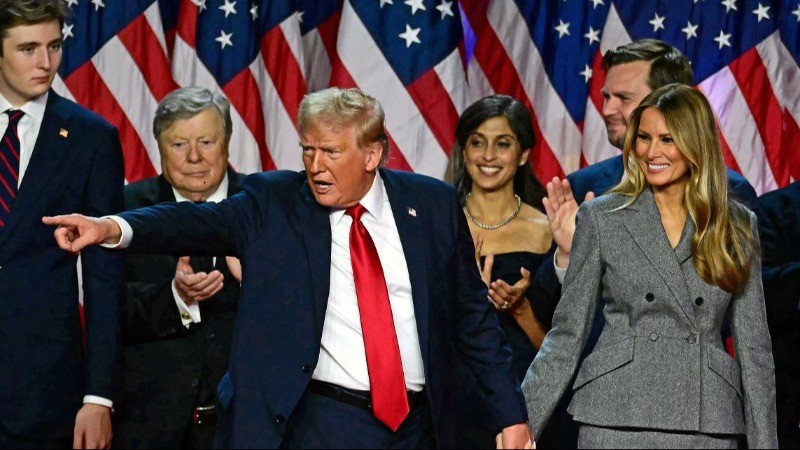
Donald Trump was elected the 47th president of the United States just over a month ago, with JD Vance as his Vice President-elect. The duo is gearing up to take on their new roles, and significant preparations are already underway.
Trump has announced most of his cabinet picks, including notable names from Florida. Sen. Marco Rubio has been chosen for Secretary of State, Jacksonville's Susan Wiles is set to become Chief of Staff, and former Florida Attorney General Pam Bondi has been nominated for U.S. Attorney General.
Meanwhile, President Joe Biden remains in the White House, continuing his duties until the upcoming Inauguration Day in January. For those unfamiliar, Inauguration Day marks the official transition of power. Here’s a quick overview of what this day entails and when it’s scheduled for next year.
As the eagerly-expected official taking-charge Day set for December 20, President-elect Donald Trump and Vice President-elect J.D. Vance are gearing up for their swearing-in ceremony, set to mark the commencement of their second term in office. Scheduled for January 20, 2025, the event will solidify Trump’s historic return as the 47th President of the United States, making him only the second U.S. president to serve non-consecutive terms.
Inauguration Details
The swearing-in ceremony will take place at the U.S. Capitol's west front in Washington, D.C., a traditional venue for presidential inaugurations. Trump’s administration is set to host prominent global figures, further underscoring the day’s significance. Reports indicate that Trump has personally invited Chinese President Xi Jinping to attend the inauguration, a gesture seen as both symbolic and strategic amid ongoing tensions between the two nations.
Sources reveal the invitation was extended in early November following Trump’s electoral victory, but it remains unclear if Xi has accepted. A spokesperson from the Chinese Embassy in Washington has yet to comment on the matter.
A Return to Power
Trump’s victory in the 2024 presidential election, with 295 electoral votes, marked a significant political comeback, defeating Democratic opponent Kamala Harris, who secured 226 votes. Vice President-elect J.D. Vance, alongside Trump, will officially assume office after taking the traditional oaths prescribed by the U.S. Constitution.
Global Leaders and Strategic Alliances
Apart from Xi Jinping, several other world leaders have been invited to the inauguration. Hungarian Prime Minister Viktor Orbán, known for his close ties with Trump, is reportedly considering attending the event. Karoline Leavitt, a spokesperson for Trump’s transition team, emphasized, “World leaders are eager to engage with President Trump, recognizing his commitment to restoring global stability through American strength.”
Economic Policies and Rising Tensions
While Trump’s inauguration symbolizes a fresh start, it also reignites debates over his economic policies. Recently, the President-elect proposed imposing additional tariffs on major trading partners, including China, Mexico, and Canada, as part of his strategy to protect American industries and counter de-dollarization. Proposed measures include a 10% tariff on Chinese imports and 25% tariffs on goods from Canada and Mexico.
Additionally, Trump’s administration has given the Chinese tech giant ByteDance, owner of TikTok, a January 19 deadline to divest its U.S. operations or face a nationwide ban. The company is currently appealing the ban in the Supreme Court after losing an earlier legal challenge.
Key Traditions and Events
The inauguration ceremony will adhere to long-standing traditions, including:
A ceremonial review of U.S. troops.
As the nation awaits this momentous occasion, all eyes are on Trump’s leadership and the potential for renewed global and domestic strategies during his second term.